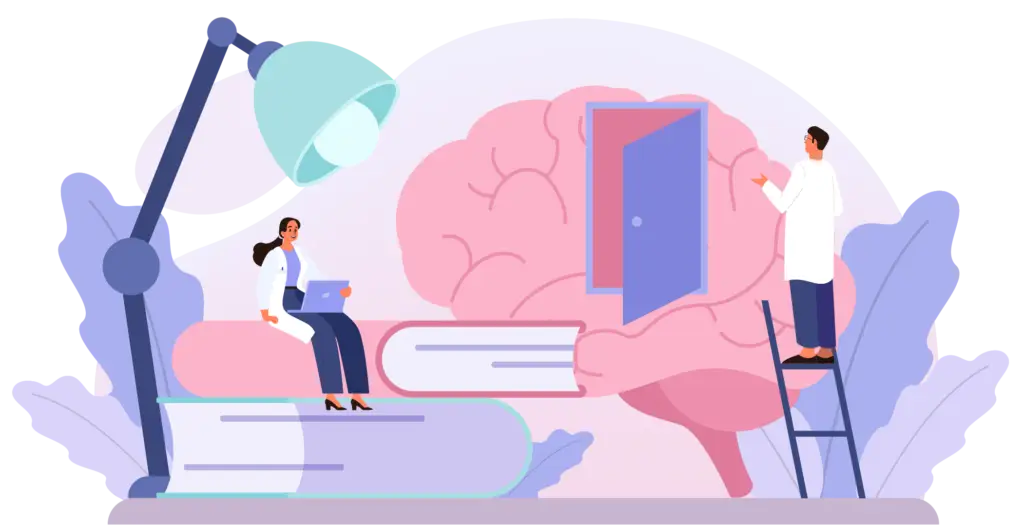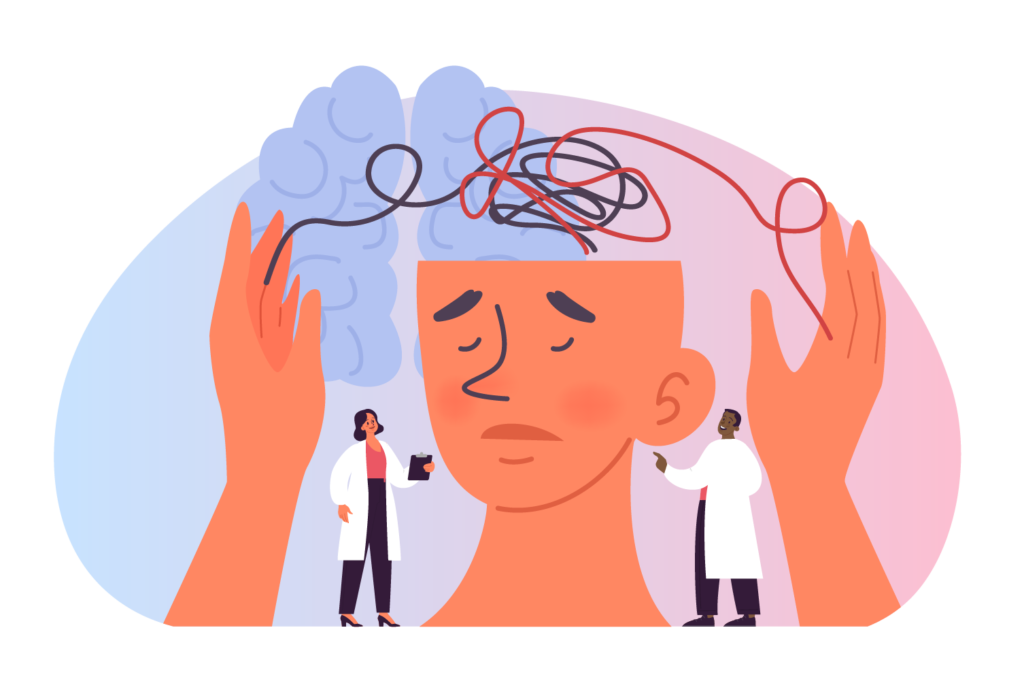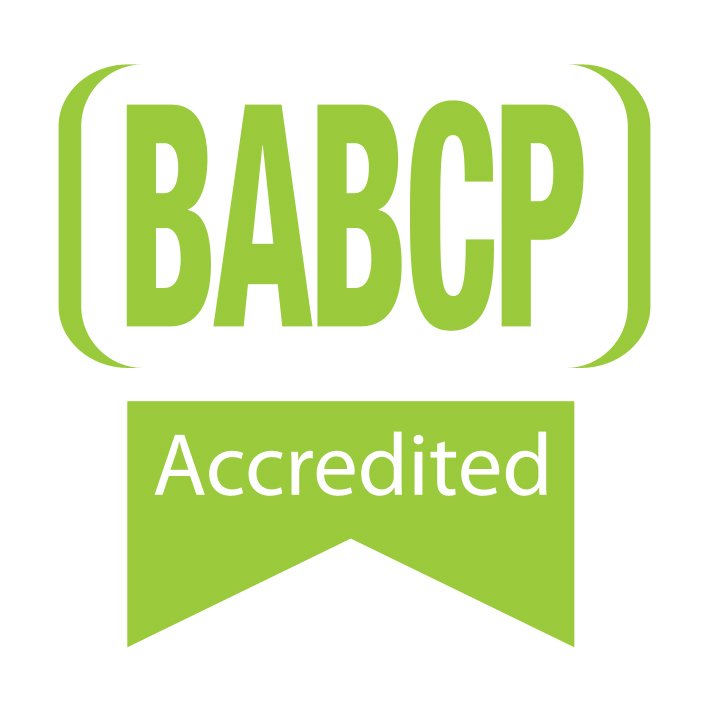Are you stuck in a cycle of negative thoughts feeling overwhelmed feeling anxious
Cognitive Behavioural Therapy (CBT) might be the solution you’ve been searching for. As a popular and evidence-based form of mental health treatment, CBT helps individuals understand and change their thought patterns and behaviours.
“CBT helped me change the way I think and react. It was like seeing life through a new lens.” – A satisfied therapy client
We will walk you through the key principles of CBT, its therapeutic process, and its effectiveness, making it easier for you to decide if it’s the right fit for your mental health needs. By the end, you’ll be well-prepared to take the first step towards a healthier mind.
What is Cognitive Behavioural Therapy?
Cognitive Behavioural Therapy (CBT) is grounded in the idea that our thoughts, feelings, and behaviours are interconnected. By changing negative thought patterns, we can influence our emotions and behaviours in a positive way.
This principle is often summarised by the CBT triangle, which illustrates the relationship between thoughts, emotions, and behaviours. It is commonly used to treat anxiety and depression, but it can be useful for other mental and physical health problems.
One of the core principles of CBT is the concept of ‘automatic thoughts.’ These are the spontaneous, often subconscious thoughts that occur in response to specific situations.
In CBT, individuals learn to identify and challenge these automatic thoughts to reduce their negative impact.

Low Intensity Cognitive Behavioural Therapy (CBT)
This is a streamlined form of CBT designed for individuals experiencing mild to moderate mental health issues. It typically involves fewer sessions and can be delivered through various mediums including face-to-face, online, or over the phone. The focus is on self-help strategies and providing individuals with tools to manage their symptoms independently.
This approach often includes:
- Guided self-help materials
- Structured short-term support from a therapist
- Exercises to identify and alter negative thought patterns
- Practical activities to improve daily functioning and well-being
While it’s a lower intensity, it still maintains the core principles of CBT and can be highly effective in improving mental health outcomes for those with less severe symptoms.
High Intensity Cognitive Behavioural Therapy (CBT)
This involves more frequent and longer sessions, typically aimed at addressing more severe or complex mental health conditions. This form of CBT is highly structured and rigorous, focusing on identifying and changing deeply ingrained patterns of thinking and behaviour. It often requires greater commitment and active participation from the individual, but it can be very effective in achieving significant and lasting improvements.
How Does Cognitive Behavioral Therapy Work
CBT works by breaking down overwhelming problems into smaller, more manageable parts. This process involves identifying specific issues and addressing them one at a time. CBT is highly goal-oriented and focused on the present. Unlike some other forms of therapy that delve deeply into past experiences, CBT concentrates on current problems and finding practical solutions to address them.
The therapy is collaborative in nature, meaning that the therapist and the client work together as a team. The therapist provides guidance and support, but the client is actively involved in setting goals and working on strategies to achieve them. CBT often includes homework assignments. These tasks are designed to reinforce the skills learned during therapy sessions and help individuals apply them in real-life situations.
Key Techniques Used in Cognitive Behavioral Therapy
CBT follows a specific process or structure, using techniques to ensure that you receive the most effective treatment possible. This organised approach helps guide both the therapist and the individual through various stages of therapy.
The key techniques are as follows:
This involves identifying and challenging irrational or negative thoughts and replacing them with more balanced and constructive ones. For example, if someone has the thought ‘I always fail at everything,’ cognitive restructuring would help them to replace it with a more accurate thought like ‘I have had successes and failures, just like everyone else.’
This approach focuses on helping individuals engage in activities that are likely to improve their mood. Often, people with depression or anxiety withdraw from activities they once enjoyed, which can worsen their symptoms. Behavioural activation encourages them to gradually re-engage in these activities, thereby breaking the cycle of avoidance and inactivity. For instance, scheduling a daily walk or a hobby can significantly improve one’s emotional state.
Particularly useful for treating anxiety disorders, including phobias and PTSD. This technique involves gradually exposing individuals to the situations or objects they fear, in a controlled and safe manner. The goal is to reduce the fear response over time. For example, someone with a fear of public speaking might start by speaking in front of a small, supportive group and gradually work up to larger audiences.
These methods help individuals become more aware of their thoughts and feelings without becoming overwhelmed by them. Mindfulness practices, such as deep breathing exercises and progressive muscle relaxation, can help reduce stress and improve emotional regulation. These techniques are particularly beneficial for managing symptoms of anxiety and depression.
This technique helps individuals develop effective strategies for dealing with challenging situations. By breaking down a problem into smaller, manageable parts, individuals can identify potential solutions and evaluate their effectiveness. This approach not only helps in resolving current issues but also equips individuals with skills to handle future challenges more effectively.
Keeping a journal or thought record can help individuals track their thoughts, emotions, and behaviours over time. This can provide valuable insights into patterns and triggers, making it easier to address them in therapy. For example, writing down negative thoughts and then challenging them can help individuals see how their thinking affects their mood and behaviour.
This technique involves acting out scenarios that might be causing stress or anxiety. Role-playing can help individuals practise new skills, such as assertiveness or social interactions, in a safe and supportive environment. This can build confidence and improve real-life interactions.
EMDR therapy can be helpful for individuals experiencing stress, low self-esteem, and performance anxiety. By reprocessing negative beliefs and memories, EMDR can foster a more positive self-image and improve overall well-being.
Advantages and Disadvantages of Cognitive Behavioural Therapy
Advantages of Cognitive Behavioural Therapy
CBT is Evidence-Based:
Backed by extensive research, CBT effectively treats conditions like depression, anxiety, and PTSD, providing confidence in its proven success.
Short-Term and Goal-Oriented:
CBT typically lasts between 5 to 20 sessions, offering quicker results compared to long-term therapies.
Structured and Focused:
The highly structured sessions keep both therapist and client focused on specific goals, making the process more manageable.
Empowers Self-Help:
CBT teaches practical tools and techniques for daily life, empowering clients to maintain their mental health independently.
Addresses Negative Thought Patterns:
By identifying and challenging negative thoughts, CBT helps improve emotional well-being and reduce mental health symptoms.
Versatile and Adaptable:
CBT can be tailored to various mental health conditions and delivered in individual, group, or online formats, increasing accessibility.
Enhances Problem-Solving Skills:
CBT strengthens problem-solving abilities, reducing stress and improving overall quality of life.
Focuses on the Present:
CBT deals primarily with current issues and practical solutions, avoiding extensive exploration of past experiences.
Disadvantages of Cognitive Behavioural Therapy
Cognitive Behavioral Therapy (CBT) is not a one-size-fits-all solution. It may not address the root causes of mental health issues, especially if related to past trauma or complex emotions.
Active Participation and Commitment:
Patients need to engage in homework and practice techniques outside of sessions, which can be challenging for those with severe symptoms.
Time-Limited:
The structured nature of CBT might not provide the ongoing support some individuals require for lasting change.
Focuses on Current Thoughts and Behaviours:
This approach may neglect the emotional and relational aspects of mental health.
Rigid Structure:
The structured nature of CBT can be too rigid for some, who may prefer a more flexible therapeutic approach.
Combination of Therapy:
Severe conditions like complex PTSD might need additional interventions beyond CBT alone.
Limited Access:
Access to trained CBT therapists can be challenging, with long NHS cognitive behavioural therapy waiting lists and the high cost of private cognitive behavioural therapy.
Not Sure If CBT The Right Fit? We Can Help You
While CBT offers numerous benefits, it’s important to note that no single therapy is universally effective for everyone. Different forms of therapy, such as EMDR, DBT, psychoanalysis, humanistic therapy, and group therapy, each have their own strengths and limitations. What works well for one individual might not be as beneficial for another, highlighting the importance of consulting with a professional to determine the most suitable approach for your specific needs.
Our Professional Consultations for Your Mental Health

Start Your Journey to Recovery Today
Finding the right help can often feel overwhelming. You might endure long waits or spend precious time experimenting with various solutions before discovering one that actually works for you.
That’s why we offer personalised consultations to pinpoint exactly what type of support you need. This approach saves you time and directs you to the most effective path for improving your mental health right from the start.
Why wait any longer to take control of your mental health? For just £60, you can book a consultation tailored specifically for you. During this session, we’ll work together to identify the best path for your needs, saving you time, effort, and money in the long run. Start your journey to better mental health today!
Why Choose Our Services?
Immediate Support
Waiting for an NHS referral can be a lengthy process and may not yield the best results for your mental health. The journey to mental wellness shouldn’t be delayed, or tested especially when you need immediate support. We offer a 50-60 minute consultation for only £60, with a qualified mental health specialist.
Timely, Personalised Care
Our professional consultations offer timely, personalised care without the wait and identify your needs immediately. Whether you’re dealing with anxiety, depression, stress, or other mental health issues, we are here to help you as soon as you need us. Don’t let waiting lists prolong your distress; take the first step towards your well-being today.
Avoid Therapy Trial-and-Error
Investing in therapy is a commitment, and it’s essential to ensure you’re on the right path from the start. Many people find themselves experimenting with different therapies, only to end up frustrated and out of pocket.
Identify Your Needs
With our expert guidance, you can avoid the trial-and-error approach. Our consultations identify your specific needs and match you with the most effective therapy options from the outset, saving you time, money, and emotional energy.
Expert Mental Health Guidance
Our team of experts provides the guidance you need to navigate your mental health journey successfully. By understanding your unique challenges and goals, we create a personalised plan that sets you on the path to recovery. Our professional consultations ensure you receive the best possible care tailored to your needs.
Your Mental Health Matters
Taking care of your mental health is essential for overall well-being. We believe in a proactive approach to mental wellness, encouraging you to seek support before things become overwhelming. By prioritising your mental health, you can lead a happier, healthier life.
How to Book a Consultation

Booking a consultation with us is simple and straightforward. Here’s how you can get started:
Go to the Booking Page:
wisemindspace.co.uk/book-a-consultation
Choose your day and time:
Select a day and time that suits you from the available slots.
Fill in your details:
Provide your contact information.
Make a payment of £60:
Select your preferred payment option.
Confirm your appointment:
Receive a confirmation email with all the details.
Our consultations are available at convenient times to fit your schedule. Don’t hesitate to take this important step towards better mental health.





